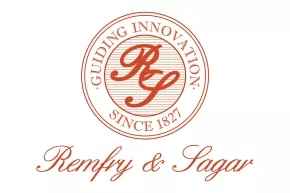Indian copyright jurisprudence has time and again been faced with the question of validity of copyright societies particularly ones dealing with musical works and sound recordings. Cases in point include the Indian Performing Right Society (IPRS) and Phonographic Performance Limited (PPL), two entities that manage licensing of music, that have long struggled for recognition under the Copyright Act, 1957 [the Act], at times claiming themselves to be 'Copyright Societies' and at other times claiming themselves to be 'owners' or 'agents' of the original copyright owner. The Bombay High Court in Novex Communications Pvt Ltd v. Trade Wings Hotels Limited [Commercial IP Suit No. 264 OF 2022] was faced with the question whether PPL and another entity managing licensing of sound recordings, Novex, were entitled to seek relief without being registered as 'copyright societies' under the Act.
Copyright societies are the creation of the 1994 Amendment to the Act. The intent behind their establishment was to promote the collective administration of rights for the benefit of the original rights owner and the general public. Essentially, they act as an 'agent' and 'assignee' of the rights owner and grant licenses in exchange of royalties. Via this mechanism, copyright owners are enabled to enforce and administer their rights effectively and users are facilitated in gaining access to copyright works by minimizing the number of people they must negotiate with in getting licensing contracts.
Such societies are required to be registered under the Act and their functioning is guided by the provisions of the Act. This, however, does not take away the owner's right to continue licensing his/her works simultaneously. A rights owner is not bound to license their work only via a copyright society and this may be carried out by them or through their duly authorized agent.
In the present case, PPL and Novex argued that they are permitted to grant licenses as they are effectively copyright owners under the Act by way of partial assignment of the copyright works from the original authors/owners. They were acting as 'agents' permitted to grant licenses. On the other hand, the defendants argued that PPL and Novex are not permitted to carry out the business of licensing copyrighted works as they are not formally registered as copyright societies under the Act.
The Court was faced with harmonizing Section 30 of the Act, which allows the owner or their duly authorized agent to grant licenses in their work, and Section 33(1) which prohibits the business of issuing or granting licenses by any person unless they are registered as a copyright society. However, the proviso to the latter Section clearly specifies that the owner of a work, in their individual capacity, shall continue to have the right to grant licenses. The Court was of the view that "if a member of the copyright society can grant license surely a non-member cannot be prevented from licensing their own works". Harmoniously interpreting the two sections, the Court clarified that the, "power under Section 30 to grant license by an owner has in no manner been denuded by Section 33(1) of the Act". PPL and Novex were held to have "power as owners to grant interest in the copyright by license under Section 30 of the Act irrespective of whether they are carrying on the business of granting licenses or not".
The Court considered that PPL and Novex were partially assigned the copyright to communicate the sound recordings to the public. Pursuant to such assignment, albeit partial, ownership rights were conferred over the work. Therefore, as owners/assignees, they were considered to have the power to grant any interest including communicating sound recordings to the public.
This harmonious interpretation paves way for such 'agent' societies to issue licenses without the need to be formally registered as a society under the Copyright Act. Clarifying that provisions of the Act do not take away rights of the owner, the Court iterated that they give a choice to exploit the work by one's own self as well as through a Copyright Society. Consequently, while original copyright owners would welcome this decision, the regulatory framework for registered copyright societies, as devised by the legislature under Chapter VII, stands to lose its purpose and meaning in so far as 'sound recordings' is concerned. Copyright 'agents' would be under no obligation to register themselves under the Act or abide by statutory regulatory provisions at all.
The content of this article is intended to provide a general guide to the subject matter. Specialist advice should be sought about your specific circumstances.

